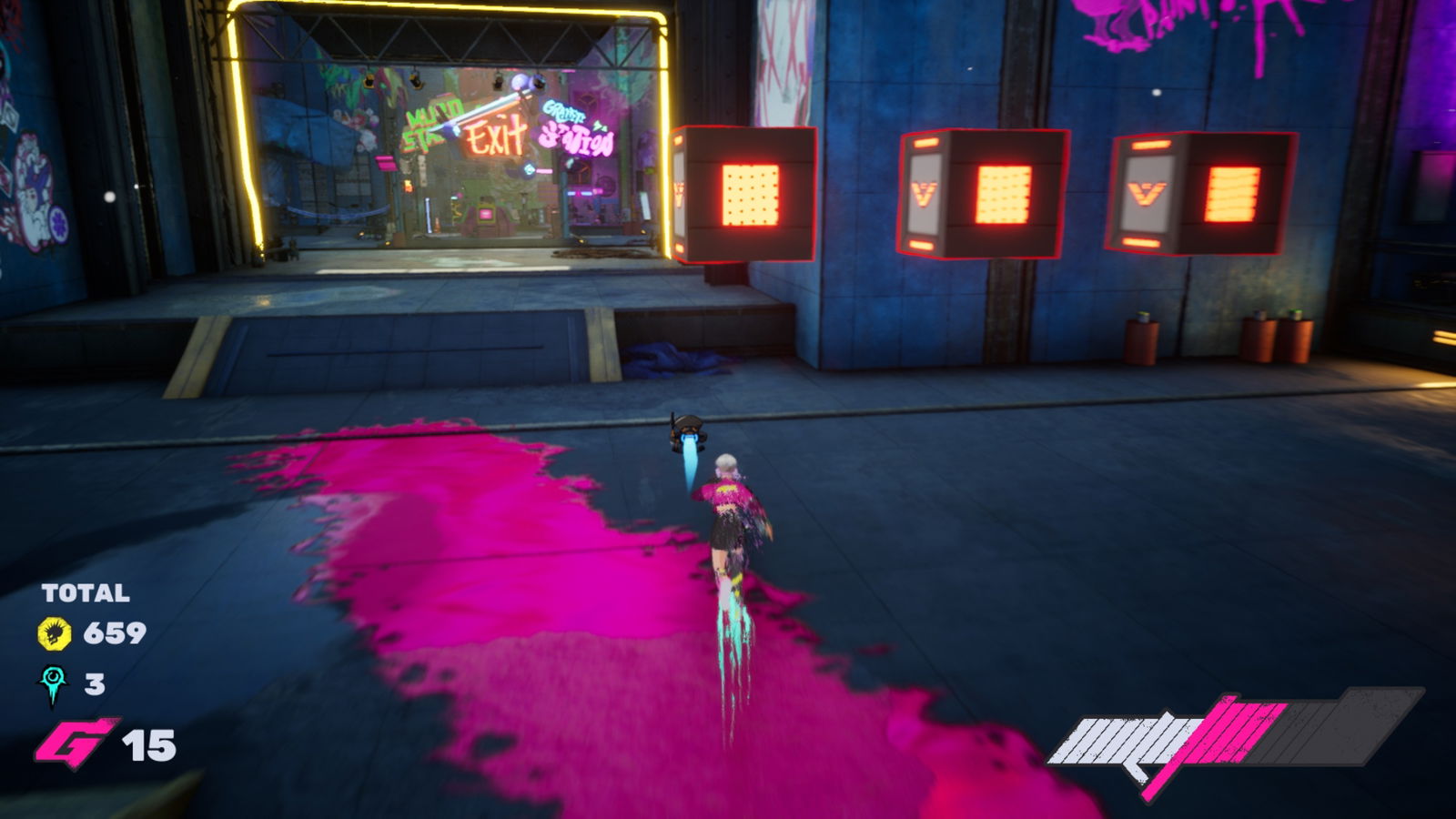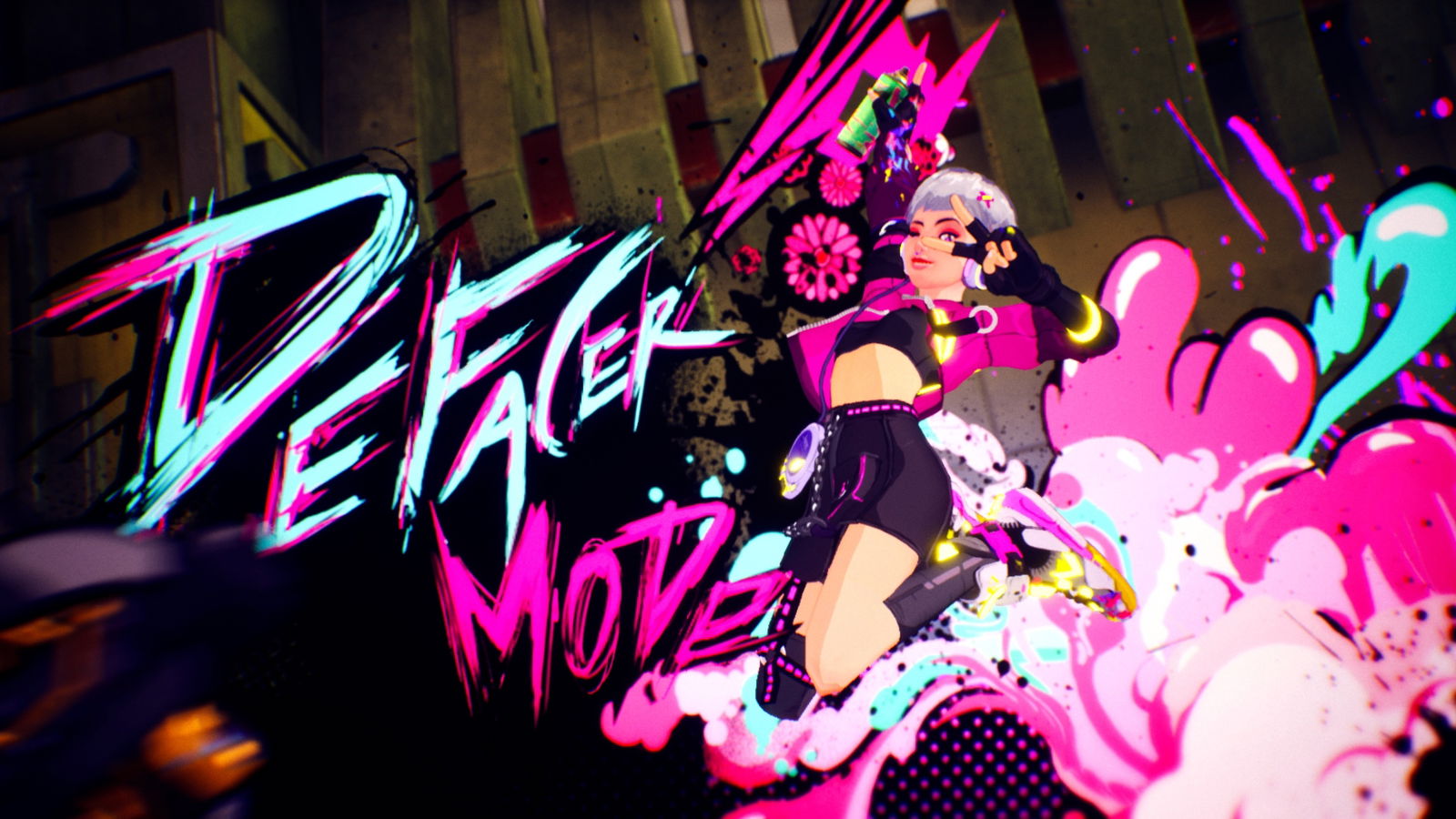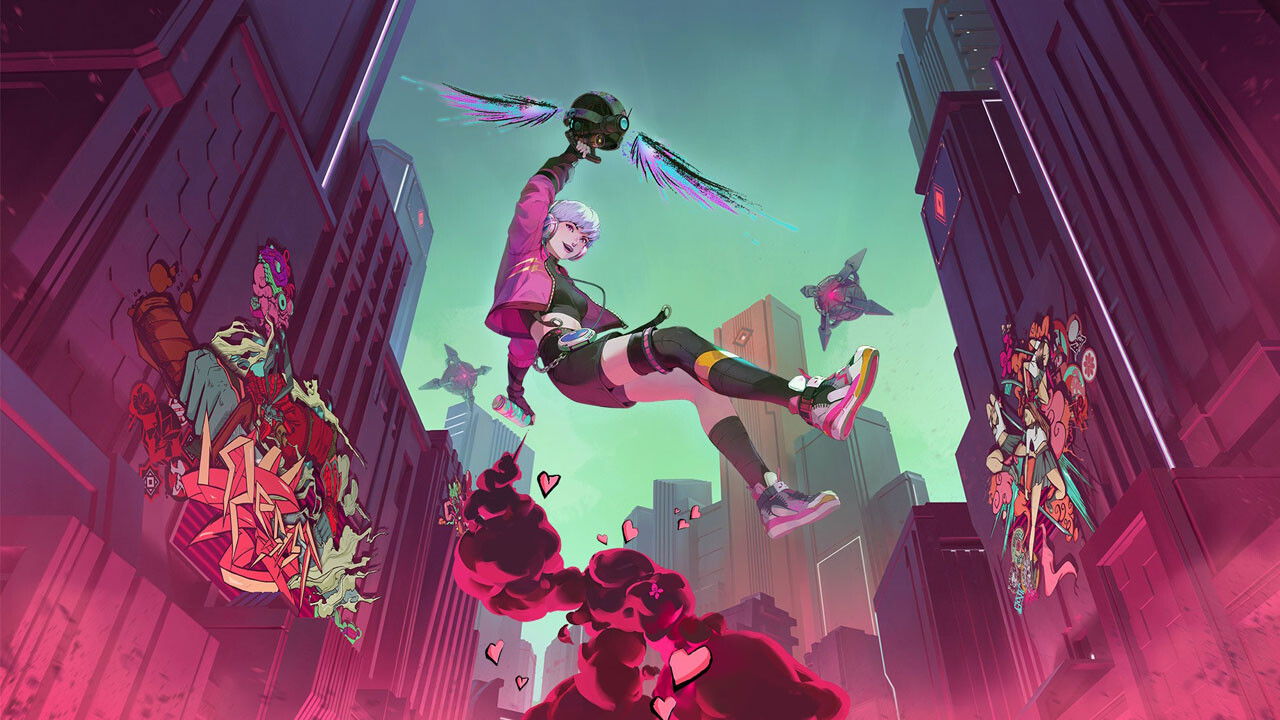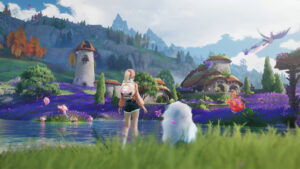Listening in on Wabisabi Design and getting some hands-on time with their debut game, RKGK or Rakugaki, if you prefer, more than anything, cemented to me the Mexico-based game devs’ love and passion towards Japanese pop culture and anime, something that translates into the very DNA of their upcoming release.
RKGK or Rakugaki refers to the juvenile or street graffiti done during the rise of counter-culture in Japan in the 80s and 90s, often meaning a doodle or rough sketch and generally from a negative authoritarian lens. Fittingly, the word embodies the action-platformer well, as RKGK is all about restoring a grey and oppressive world back to life through the power of graffiti and art.
Although familiar-sounding, RKGK’s story does a good job of setting things up. The game takes place in a city under the oppressive rule of the evil Mr. Buff, the CEO of the mega-powerful B-Corp corporation. Players assume the role of Valah, a young and rebellious graffiti artist armed with the power of paint, which in the world of RKGK is enough to destroy Mr. Buff’s mind-controlling influence over the city.
RKGK is an action platformer that emphasizes speed. Each level encourages multiple playthroughs to get the best time, among other side objectives like netting all available bonus collectables. The hands-on demo I played consisted of the first three levels, the hub area, and the first boss encounter players can expect in RKGK.
“RKGK or Rakugaki, if you prefer, more than anything, cemented to me the Mexico-based game devs’ love and passion towards Japanese pop culture and anime, something that translates into the very DNA of their upcoming release.”
People, myself included, will initially compare RKGK to games like Jet Set Radio, but in reality, the game is closer to something like a modern Sonic game, striking a balance between action and speed. As Valah, the player must spray paint over key mind-controlling propaganda billboards or digital posters that dot each level. Consecutively vandalizing B-Corp signage without getting hit or losing HP grants the player with a power-up that boosts your stats and movement ability, further emphasizing fast movement to the end of the stage.

Outside of painting up propaganda, the brutalist-inspired opening levels in RKGK offer a good bit of side items to collect, often hidden or just to the side of the obvious path forward, incentivizing players to take things slower the first time around. Certain terrain allows the player to press the trigger and paint the floor, creating a slippery slope for Valah to glide across, similar to the movement mechanic in Splatoon and similar games that feature momentum.
As Valah, players can double jump, glide, dash and even grind on rails while traversing the semi-linear levels of RKGK. Valah can dish out damage to enemies, although combat is relatively basic and seems to exist more as a means to build up your special meter to zip through levels.
“People, myself included, will initially compare RKGK to games like Jet Set Radio, but in reality, the game is closer to something like a modern Sonic game, striking a balance between action and speed. “
The emphasis on speed translates to my enjoyment of RKGK as well. I found it way more fun and rewarding when I ignored collecting every little item in favour of getting to the end as quickly as possible, which in turn required faster reaction times and skill.

Outside of the action stages, RKGK features a fairly robust hub area in which the player can purchase outfits, accessories, paint pallets, graffiti tags (stickers) and even custom skins for their robot assistant that all cost in-game currencies, all of which can be earned by playing the game and going for the collectables. Even for a demo, RKGK‘s selection of cosmetics was fairly extensive, with several throwbacks to popular anime and manga such as Evangelion with costumes like the “Third Child,” which should appease older anime fans looking for that elusive hit of nostalgia.
Ultimately, RKGK feels like a long-lost Dreamcast game, but one made in the modern era, making it worthwhile to keep on your radar if you’re a fan of retro anime and 3D platformers. Like the library of often experimental and passion-fueled titles that made up the Dreamcast’s library, RKGK feels like a game made with heart and part of that can be contributed to the efforts of The Riot Games Underrepresented Founders Program, an initiative that has pledged $10 million towards underrepresented talent across the globe, making projects like RKGK possible.





